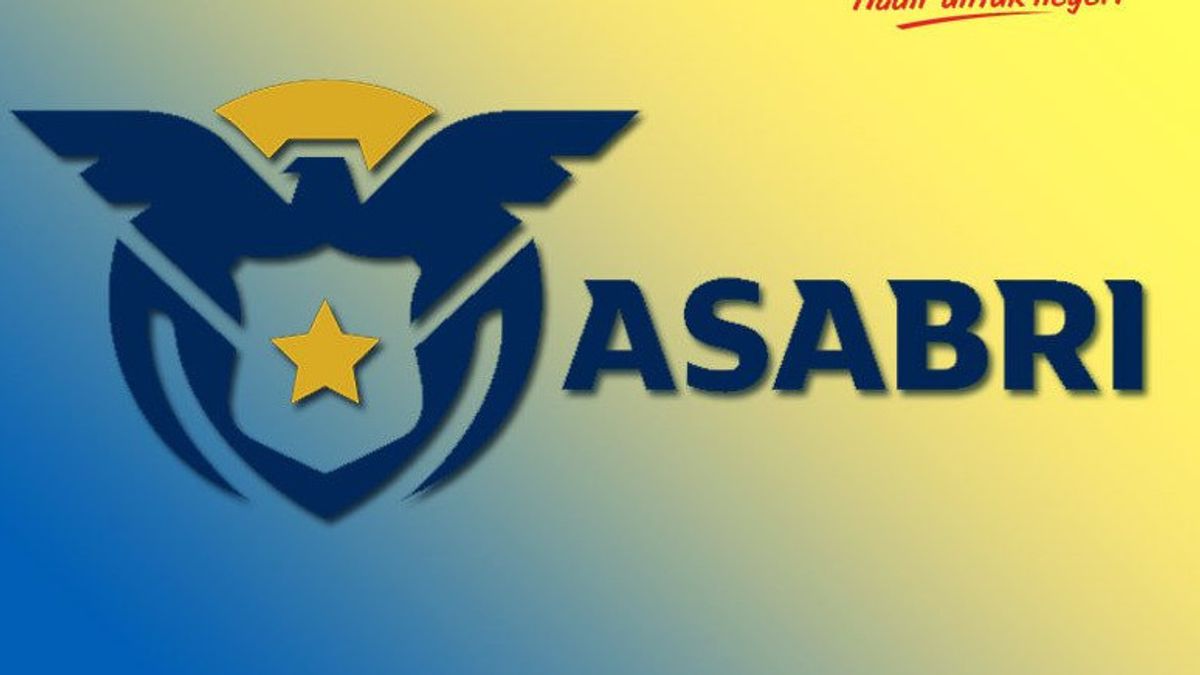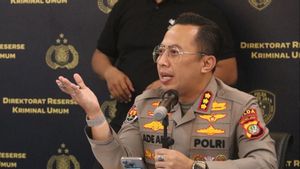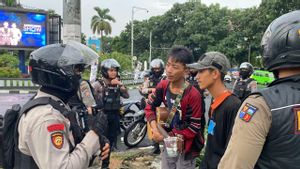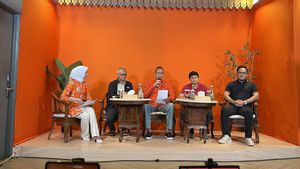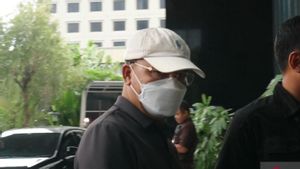JAKARTA - Professor of Criminal Law at Airlangga University, Nur Basuki Minarno, assessed. State administrators or ASN must be prosecuted for heavier crimes than the private sector related to corruption. Because, corruption will always occur if there is involvement of state officials.
The statement was in response to the different demands of the public prosecutor (JPU) at the Attorney General's Office in the alleged corruption case in the management of PT Asuransi Sosial Armed Forces of the Republic of Indonesia or PT Asabri (Persero).
Where the private party, namely the President Director of PT Trada Alam Minerba Heru Hidayat, was charged with the death penalty. Meanwhile, a number of former directors of PT Asabri who became defendants were only charged with imprisonment of 10 to 15 years.
“In general, the punishment for state officials or civil servants should be heavier than the private sector. Because in general, corruption occurs because there is involvement from civil servants or state officials," Nur told reporters, Tuesday, December 21.
His statement was conveyed because it is almost impossible for a criminal act of corruption not to involve state officials or ASN. The reason is that it is the state administrators who have the power and authority to regulate policies and manage the state budget.
"Corruption should involve the state apparatus because it is the state apparatus who has the power, has the authority to do so," said Nur.
Moreover, Nur emphasized that the threat of punishment for corruption defendants was not based on the size of the state losses caused.
Where, in Article 2 and Article 3 of Law Number 31 of 1999 as amended by Law Number 20 of 2001 concerning the Eradication of Criminal Acts of Corruption (the Anti-Corruption Law), it does not regulate at all the amount of state losses will affect the threat of punishment for the accused.
"In the Anti-Corruption Law, the magnitude of the state's financial loss is not linear with the severity of the crime. Especially in Article 2 and Article 3 (the Anti-Corruption Law), it does not state how much the state's financial losses are. The important thing is that there are state financial losses caused by unlawful acts or abuse of authority, it is a criminal act of corruption as intended by Article 2 and Article 3, "explained Nur.
However, Nur was reluctant to say that the prosecutor's demands in the PT Asabri corruption case were unfair. The reason is that the meaning of the word 'fair' really depends on the point of view of each party.
However, said Nur, if placed in an appropriate and appropriate portion, then the punishment for state officials in corruption cases should be heavier than the private sector.
"I'm not talking about fair or unfair, because it's hard to measure it, fair is from which side, it's difficult to give a fair definition, depending on which side. So, we return to our respective portions," said Nur. On a different occasion, the Criminal Law expert from Trisakti University, Dian Adriawan, assessed that the prosecutor's demands from the AGO against the defendants in the Asabri case were unfair. This is because the defendant Heru Hidayat was charged with the death penalty, while the former president director and directors of PT Asabri were charged with the following sanctions.
"When it comes to criminal threats, it depends on the roles performed. But if, for example, someone is charged with the death penalty while others are not charged with the death penalty, that's something I think is unfair," said Dian.
"In this case (the Asabri case), the article that is applied is the same article and is juntoed with Article 55 of the Criminal Code. Now, if it is juntoed with article 55 and it is proven, it means that here it is impossible for anyone to be sentenced to death because of the article that was indicted. Article 2 paragraph (1) of the Anti-Corruption Law," he continued.
In fact, Dian was surprised by the prosecutor's demands. This is because the important actors in corruption cases are state officials or administrators. The involvement of the private sector is usually only associated with Article 55 of the Criminal Code, namely participating in committing criminal acts.
"Because of this, they are charged with Article 2 paragraph (1) of the Anti-Corruption Law junto Article 55 of the Criminal Code, Article 55 is what links the existence of the private sector in this case. How come the private sector has been given a heavier sentence, the criminal charges have been made," said Dian.
Dian also likened this corruption case to a double badminton game. If one player is wrong, then the other is wrong too and the penalty applies to all and is the same.
"In the Asabri case, the main thing to look at is the state administration, only the private sector in Article 55 of the Criminal Code. But then why does Article 55 (private) have a higher penalty? That's illogical, it's the state administrators who must be higher because the provisions on corruption are for actual state administrators. This is strange," concluded Dian.
In this case of alleged Asabri corruption, the President Director of PT Trada Alam Minera Heru Hidayat was charged by the prosecutor with the death penalty because the prosecutor believed that Heru and a number of other parties had committed corruption in the management of PT Asabri's funds which cost the state finances around Rp. 22.78 trillion.
In addition, Heru Hidayat was required to pay compensation of Rp 12.434 trillion. In contrast to Heru Hidayat, a number of other parties who are believed by the prosecutor to be jointly involved in corruption in the Asabri case, especially those from the PT Asabri board of directors, received a lighter sentence.
A number of other parties, namely the President Director of PT Asabri for the period 2012-March 2016 Major General Purn Adam Rachmat Damiri was charged by the prosecutor with a 10-year prison sentence plus a fine of Rp. Then, Director of Investment and Finance of PT Asabri for the period 2012-June 2014 Bachtiar Effendi was charged with a 12-year prison sentence plus a fine of Rp.
Then, Director of Investment and Finance of PT Asabri for the period July 2014-August 2019 Hari Setianto was charged with a 14-year prison sentence plus a fine of Rp. 750 million, subsidiary of 6 months in prison. Meanwhile, the President Director of PT Asabri for the period March 2016-July 2020, Lieutenant General Purn Sonny Widjaya, was charged with a 10-year prison sentence plus a fine of IDR 750 million, subsidiary of 6 months in prison and a replacement money of IDR 64.5 billion.
The English, Chinese, Japanese, Arabic, and French versions are automatically generated by the AI. So there may still be inaccuracies in translating, please always see Indonesian as our main language. (system supported by DigitalSiber.id)
